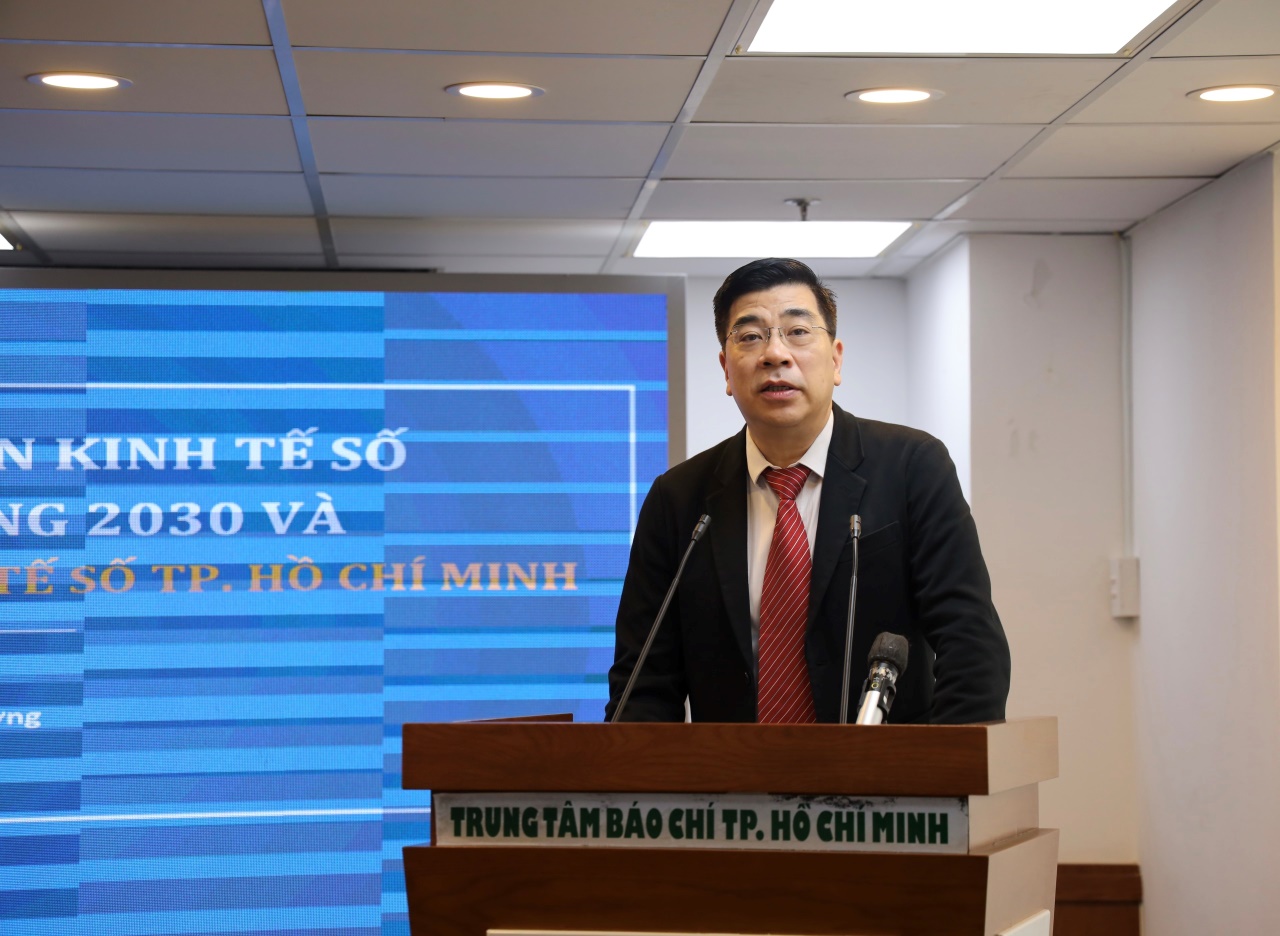HCMC – HCMC is grappling with challenges as it aspires to become a prominent digital economy and digital society hub by 2030, said Lam Dinh Thang, director of the HCMC Department of Information and Communications.
Thang outlined these challenges during a conference on sustainable digital economy development this morning, September 7, jointly organized by the department, the Department of Digital Economy and Digital Society, and Nguoi Lao Dong newspaper.
He identified three key hurdles hindering HCMC’s digital economic development. They comprise inadequate awareness across various sectors and levels, the absence of standardized measurement tools and the need for enhanced policies and resources to support small- and medium-sized enterprises (SMEs).
Tran Minh Tuan, head of the Department of Digital Economy and Digital Society at the Ministry of Information and Communications, underscored the potential of the digital economy as a catalyst for new development.
He highlighted ambitious goals for the digital economy, aiming to contribute 30% to the nation’s gross domestic product (GDP) and 40% to HCMC’s gross regional domestic product (GRDP) by 2030.
Preliminary data for the first half of 2023 showed impressive digital economic growth of 20%, three times that of GDP growth during the same period. Tuan stressed the need for a swift transition of various economic sectors to digital platforms, emphasizing that moving products online can trigger comprehensive changes in the production process.
The National Assembly’s Resolution 98 underscores the importance of comprehensive policies and strategic roadmaps for digital economic development, encompassing pilot programs, standardization, and enhanced management. Nevertheless, achieving these development goals necessitates regional collaboration, according to Tuan.
Currently, HCMC is home to around 7,000 information and communication technology businesses. In 2021, the digital economy contributed around 15.3% to the city’s GRDP, excluding e-commerce and the sharing economy. By 2022, this figure increased to 18.66%.
The city’s target is to elevate the digital economy’s contribution to the city’s GRDP to 25% by 2025 and 40% by 2030, surpassing national averages by 5-10%.









